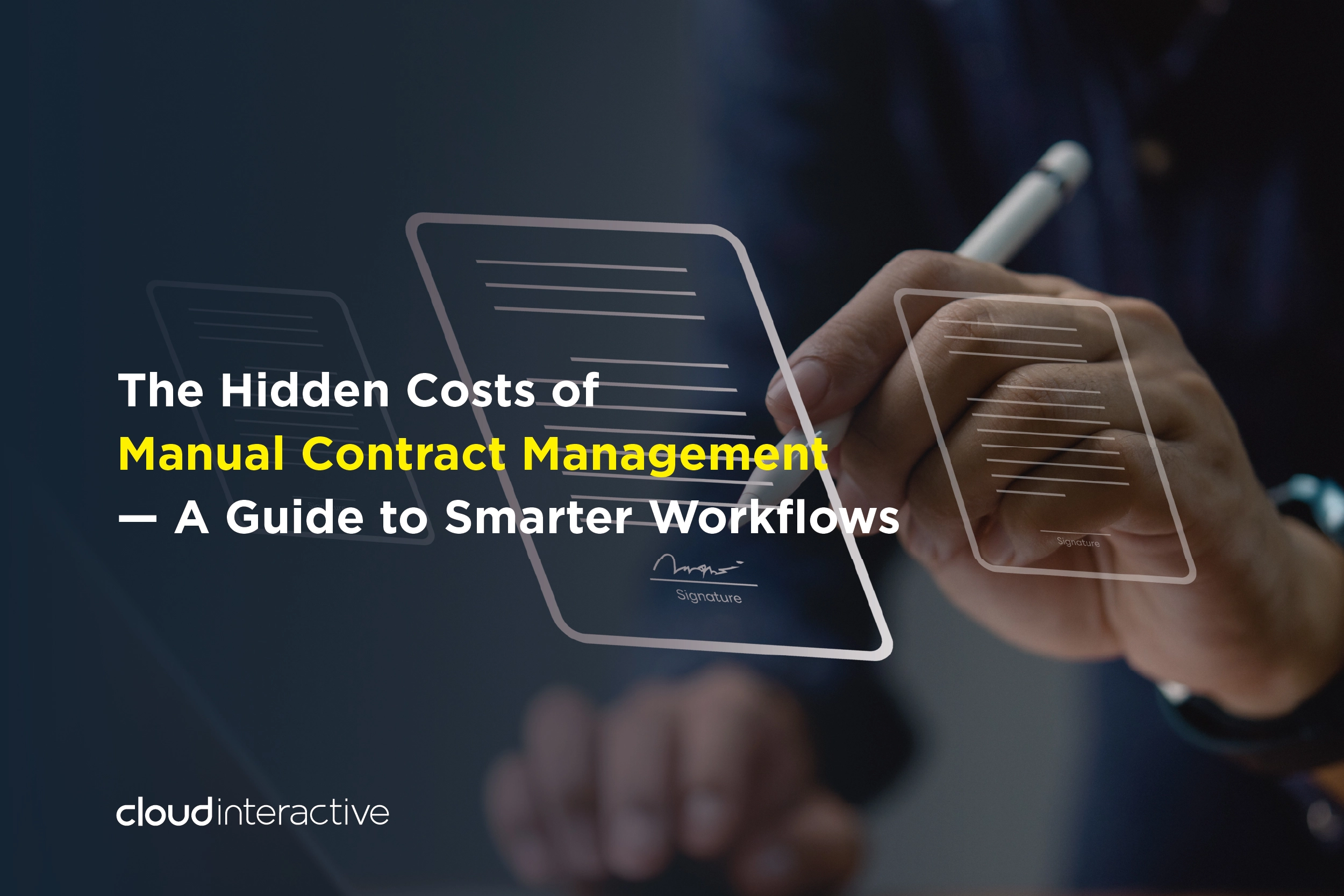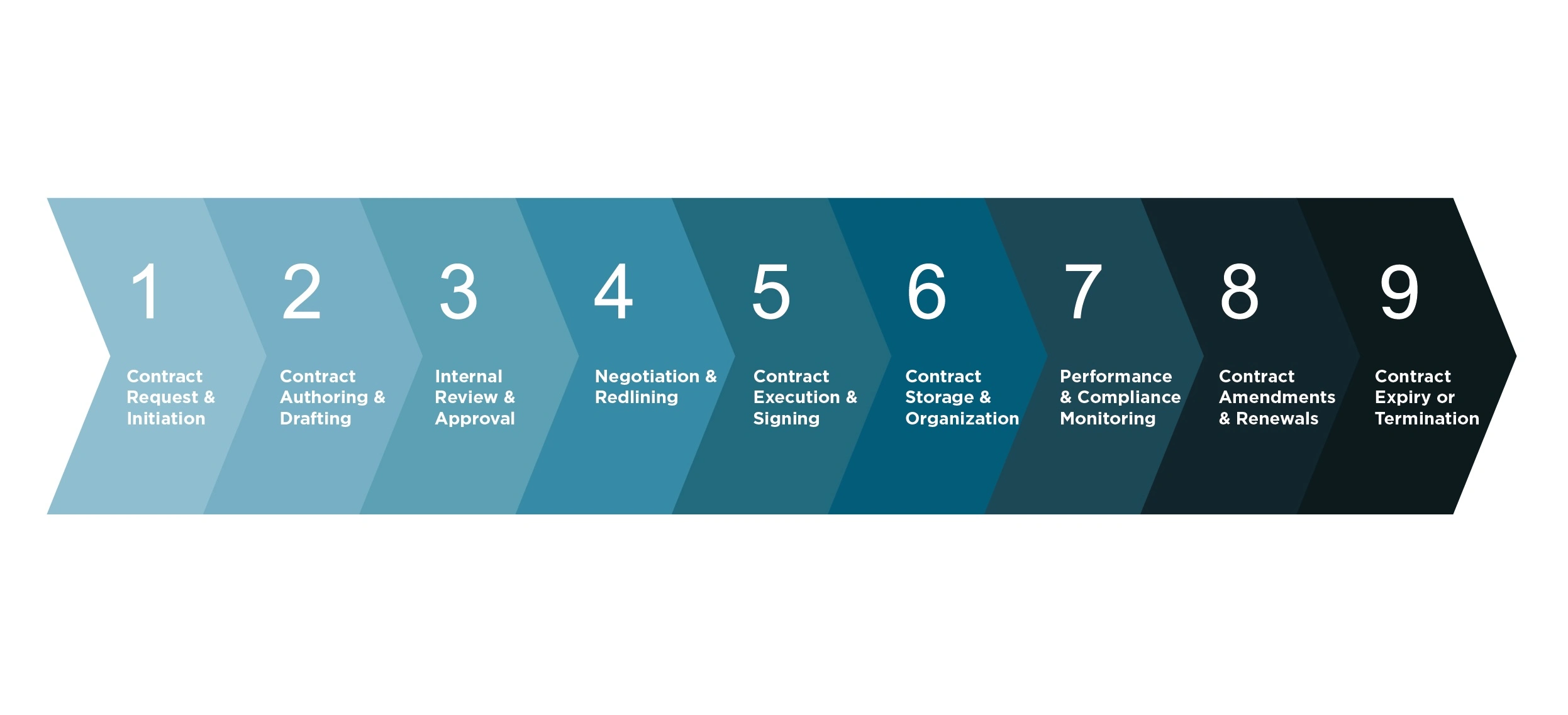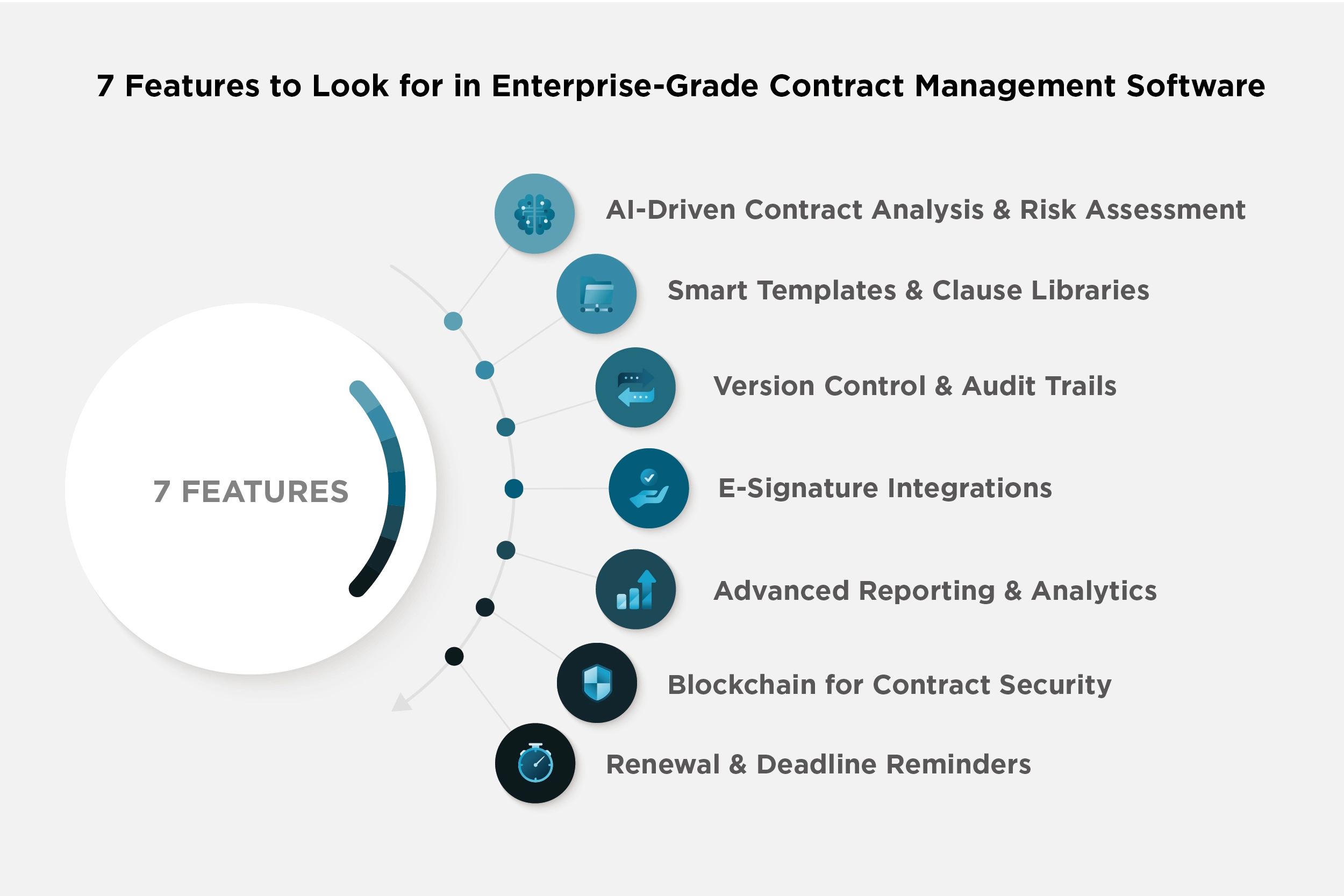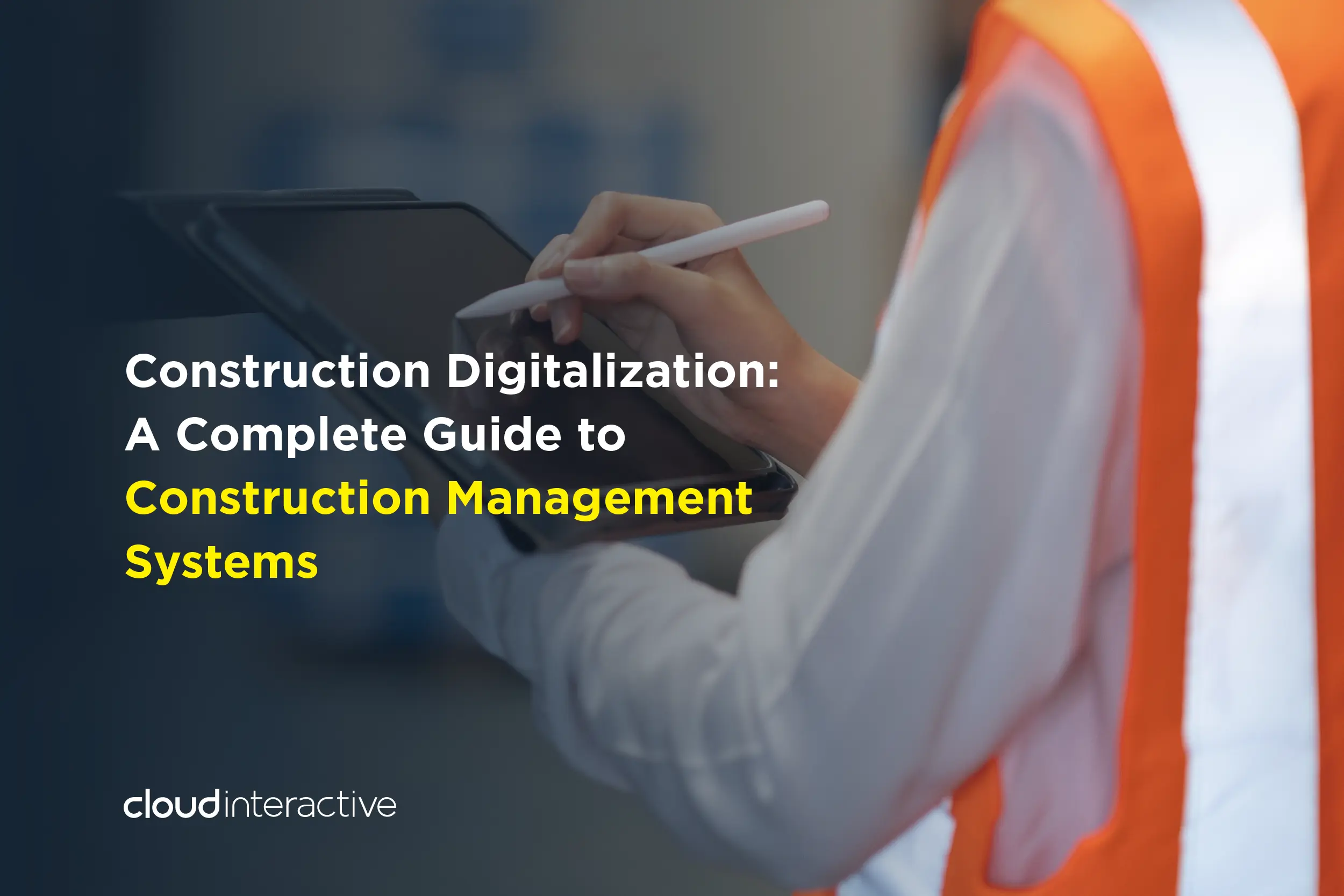
The Hidden Costs of Manual Contract Management — A Guide to Smarter Workflows
Table of Contents
- Key Challenges in Contract Management
- 9 Stages of the Contract Lifecycle Management
- What is Contract Management Software
- 5 Benefits of Modern Contract Management Software
- 7 Core Features You Should Look For
- Off-the-Shelf vs. Custom Solutions
- When to Invest in a Tailored Solution?
- Best Practices for Implementation
- Real-world Use Cases
- Final Words: Your Contracts, Your Rules
Drowning in contract chaos? Missed deadlines, compliance headaches, lost documents, and endless back-and-forth approvals. Contracts are the backbone of business, defining partnerships, setting expectations, and protecting interests. But as companies grow, managing them efficiently and securely becomes increasingly complex, turning contract management into a major bottleneck.
Contract Management Software (CMS) is a game-changer for businesses looking to streamline workflows, reduce risks, and take control of agreements. In this guide, we’ll uncover everything from contract management challenges and the Contract Management Lifecycle (CML) to the key benefits and must-have features of modern CMS.
Key Challenges Enterprises Face in Contract Management
• Poor Visibility & Tracking
Without a centralized contract repository, businesses struggle to track contract lifecycles, making it difficult to monitor obligations, payment terms, and renewal dates, increasing financial exposure.
• Compliance & Regulatory Issues
Evolving regulations, industry standards, and regional compliance laws require constant contract monitoring. Failure to comply with requirements such as GDPR, HIPAA, or SOC 2 can result in hefty fines, reputational damage, and potential lawsuits.
• Approval & Negotiation Bottlenecks
Traditional contract workflows rely on back-and-forth email approvals, slowing down negotiations and delaying business deals. Manual contract redlining and approval bottlenecks can increase operational costs and extend contract cycles unnecessarily, leading to lost revenue and missed opportunities.
• Revenue Leakage & Costly Disputes
• Security & Data Integrity Risks
Traditional contract management methods, such as storing contracts in shared drives or email attachments, increase the risk of data breaches and loss of critical agreements.
• Lack of Scalability & Process Standardization
A lack of standardized processes creates inefficiencies and administrative overhead. Organizations relying on spreadsheets and emails struggle to scale their contract operations while maintaining accuracy and compliance.

9 Stages of the Contract Lifecycle Management
The Contract Management Lifecycle (CML) is the process of managing contracts—from initiation to execution, performance monitoring, and eventual renewal or termination. 9 stages of the contract management process are as follows:Stage 1: Contract Request & Initiation
Stage 2: Contract Authoring & Drafting
Legal and procurement teams create the contract using standardized templates and predefined clauses to ensure consistency, accuracy, and compliance with company policies.Stage 3: Internal Review & Approval
Key stakeholders, including legal, finance, and compliance teams, review the draft for risks, legal obligations, and business terms before approving it for negotiation.Stage 4: Negotiation & Redlining
Both parties discuss, modify, and refine contract terms through redlining and version control. The goal is to reach a mutually beneficial agreement before finalizing the contract.Stage 5: Contract Execution & Signing
Once finalized, the contract is signed either electronically or manually.Stage 6: Contract Storage & Organization
Once finalized, the contract is signed either electronically or manually.Stage 7: Performance & Compliance Monitoring
Teams should keep track of contract obligations, key milestones, and regulatory compliance, ensuring that all parties meet their commitments.Stage 8: Contract Amendments & Renewals
Contracts nearing expiration are reviewed for potential updates, renegotiations, or renewals to maintain business continuity and avoid disruptions.Stage 9: Contract Expiry or Termination
When a contract reaches its end, it is either formally closed, archived, or renegotiated based on future business needs. Proper documentation ensures a smooth transition for all parties.Interested in building your AI-powered document management solution?
Your business processes shouldn't have to adapt to your tools. Cloud Interactive has over 15 years of experience creating custom solutions that work with your existing workflows, compliance requirements, and integrations.
What is Contract Management Software?
Contract Management Software (CMS) is a digital platform that helps your business automate and centralize contract processes. Instead of juggling multiple tools or searching through endless email threads, CMS provides a structured approach to managing agreements, ensuring better visibility, compliance, and control.
5 Benefits of Modern Contract Management Software
(1) Automation Accelerates Contract Processes
By reducing manual effort in drafting, approval, and execution, CMS speeds up contract cycles and enables businesses to close deals faster. This increased efficiency enhances business agility and reduces delays.
(2) Enhanced Compliance and Risk Management
AI-driven compliance tracking ensures contracts adhere to regulatory requirements while identifying potential risks before they become costly legal issues. This proactive approach minimizes compliance breaches and protects the business from legal disputes.
(3) Significant Cost Savings and Revenue Protection
CMS prevents missed contract renewals, reducing the risk of costly penalties and disputes. It also cuts down legal fees and inefficiencies, ensuring that organizations maximize the financial value of their contracts.
(4) Data-Driven Insights for Better Decision-Making
Real-time analytics provide businesses with a clear view of contract performance, helping them identify opportunities for negotiation and process improvements. With better data, companies can optimize contract terms and increase profitability.
(5) Seamless Collaboration Across Departments
A centralized platform allows legal, sales, finance, and HR teams to work together more efficiently. By streamlining communication and approvals, businesses eliminate bottlenecks and accelerate decision-making.

7 Features to Look for in Enterprise-Grade Contract Management Software
(1) AI-Driven Contract Analysis & Risk Assessment
(2) Smart Templates & Clause Libraries
Standardized contract templates and predefined clause libraries accelerate contract creation while ensuring legal consistency across all agreements.(3) Version Control & Audit Trails
Full visibility into every contract edit, approval, and negotiation helps maintain compliance and track changes throughout the contract lifecycle.(4) E-Signature Integrations
Seamless integration with e-signature solutions allows contracts to be signed securely within the CMS, reducing turnaround time and improving efficiency.(5) Advanced Reporting & Analytics
Real-time insights into contract performance, obligations, and risks enable data-driven decision-making and proactive contract management.(6) Blockchain for Contract Security
Blockchain technology ensures contract integrity by preventing tampering, fraud, and unauthorized changes with immutable records.(7) Renewal & Deadline Reminders
Automated alerts help businesses stay on top of contract renewals, preventing missed deadlines, penalties, and lost opportunities.Off-the-Shelf vs. Custom Contract Management Software
Choosing the right CMS isn’t just about features but finding a solution that aligns with your business model, budget, and long-term goals. To help you make an informed decision, here’s a side-by-side comparison of two different solutions.
Pricing
- Custom: Higher initial investment but long-term savings
- Off-the-Shelf: Subscription-based, lower upfront cost
Customization
- Custom: Fully tailored to your workflows & business needs
- Off-the-Shelf: Limited
Integration
- Custom: Ability to integrate with your internal systems
- Off-the-Shelf: Integrate with popular off-the-shelf solutions but limited integration capability with your systems
Security & Compliance
- Custom: Enhanced security with industry-specific compliance
- Off-the-Shelf: Standard Security features
Deployment Time
- Custom: 3-12 months development time
- Off-the-Shelf: Quick setup
Scalability
- Custom: Built for long-term scalability & ROI
- Off-the-Shelf: May have limitations when the business grows
Features
Custom CMS
Off-the-Shelf CMS
Pricing
Higher initial investment but long-term savings
Subscription-based, lower upfront cost
Customization
Fully tailored to your workflows & business needs
Limited
Integration
Ability to integrate with your internal systems
Integrate with popular off-the-shelf solutions but limited integration capability with your systems
Security & Compliance
Enhanced security with industry-specific compliance
Standard Security features
Deployment Time
3-12 months development time
Quick setup
Scalability
Built for long-term scalability & ROI
May have limitations when the business grows
When to Invest in a Tailored Solution
While off-the-shelf contract management solutions work well for businesses with standardized, low-volume contract processes, enterprises with complex workflows, strict compliance needs, and deep integration requirements often benefit more from custom-built CMS.
A tailored solution ensures:
- Adaptability to Unique Workflows – Custom CMS platforms support industry-specific regulations, multi-tiered approvals, and complex contract lifecycles.
- Seamless Integration – Works effortlessly with ERP, CRM, and procurement systems for a unified contract management process.
- Advanced Security & Compliance – Meets regulatory requirements like HIPAA, GDPR, and SOC 2, reducing compliance risks.
- AI-Powered Automation – With enterprise AI, you can speed up contract negotiations, risk assessments, and reporting for better decision-making.
- Long-Term ROI – While the initial investment may be higher, a custom CMS drives efficiency, compliance, and risk reduction, making it a strategic asset.
If your business requires scalability, enhanced security, and deeper system integrations, custom CMS is the smarter investment for long-term success.
Looking For Custom Contract Management Software To Maximise Your ROI?
Best Practices for Implementing Contract Management Software
A successful CMS implementation requires strategic planning, collaboration across departments, and a phased approach to ensure smooth adoption and long-term success. By following these best practices, you can maximize the value of your CMS and streamline contract management across your organization.- Align Key Stakeholders – Involve Legal, Finance, Procurement, and IT from the start to drive company-wide adoption and avoid resistance.
- Ensure Seamless Integration – Your CMS should connect with ERP, CRM, and financial systems to create a unified and automated workflow.
- Define KPIs for Success – Establish measurable goals such as contract cycle time, compliance rates, renewal efficiency, and cost savings to track impact.
- Invest in Change Management & Training – Educate employees on how the CMS simplifies their work, ensuring faster adoption and minimal disruption.
- Roll Out in Phases – Start with a pilot program in one department, gather feedback, refine processes, and then expand across the organization.
Real-World Use Cases
Many industries use Contract Management Software to handle complex agreements and improve contract oversight. For example, healthcare relies on CMS for vendor agreements and HIPAA compliance, while finance manages loan contracts and regulatory requirements. Manufacturing, retail, and government sectors use it for supplier management, procurement, and contract tracking.
Now, let’s dive into two real-world cases that highlight how enterprises successfully implement CMS to solve contract management challenges.
● Coca-Cola’s Digital Upgrade: Improving Efficiency with Contract Management Automation
Coca-Cola’s adoption of contract management software revolutionized how it handles bottling agreements and vendor partnerships across multiple regions. By digitizing and automating workflows, the company improved transparency, strengthened regulatory compliance, and streamlined operations. Notably, Coca-Cola achieved a 20% reduction in cycle times and significant cost savings through enhanced compliance tracking and process automation.
● Taiwan’s Leading Luxury Furniture Wholesaler Optimizes Contract Management with a CMS Solution

Your Contracts, Your Rules — A System That Adapts to Your Business
Managing contracts efficiently is essential for business success. A contract management system streamlines workflows, enhances security, and reduces compliance risks. While off-the-shelf solutions offer basic functionality, a custom-built CMS provides greater flexibility, seamless integration with ERP, CRM, and procurement platforms, and AI-powered insights for smarter decision-making. Designed to scale, a tailored solution ensures long-term efficiency and digital transformation.By Cloud Interactive
Meet the masterminds behind the curtain at Cloud Interactive. We're not just software developers - we're also a content crew fuelled by caffeine and a thirst for knowledge. We translate tech jargon into plain English, dissect industry trends, and craft helpful tips that are informative and engaging. So, buckle up and join us on a journey through the ever-evolving and exciting world of technology!


